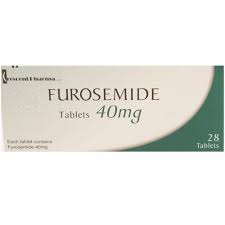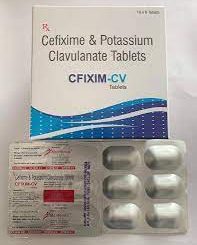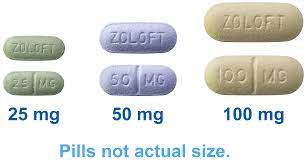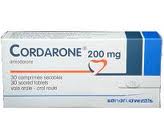Crucial facts about furosemide

- To reduce nighttime urination, take furosemide early in the day unless otherwise directed by your doctor.
- Promptly report any muscle weakness or cramps to your doctor.
What is furosemide?
- Furosemide is in a class of drugs called loop diuretics (water pills). It decreases the amount of fluid in the body by increasing the amount of salt and water lost in the urine.
- Furosemide is used to reduce swelling in the body caused by congestive heart failure, liver disease, or kidney disease.
- Furosemide may also be used for purposes other than those listed in this medication guide.
How should I take furosemide?
- Take furosemide exactly as directed by your doctor. If you do not understand these directions, ask your pharmacist, nurse, or doctor to explain them to you.
- Take each dose with a full glass of water.
- To reduce nighttime urination, take furosemide early in the day unless otherwise directed by your doctor.
- Do not stop taking furosemide suddenly even if you feel better. Stopping suddenly could make your condition worse.
- Store furosemide at room temperature away from moisture and heat.
Who should not take furosemide?
- Before taking this medication, tell your doctor if you have· an allergy to sulfa medicines such as sulfa-based antibiotics,
· kidney disease,
· liver disease,
· diabetes mellitus,
· gout, or
· systemic lupus erythematosus. - You may not be able to take furosemide, or you may require a dosage adjustment or special monitoring during treatment if you have any of the conditions listed above.
- Furosemide is in the FDA pregnancy category C. This means that it is not known whether furosemide will harm an unborn baby. Do not take furosemide without first talking to your doctor if you are pregnant.
- Furosemide passes into breast milk and may affect a nursing infant. Do not take furosemide without first talking to your doctor if you are breast-feeding a baby.
What happens if I miss a dose?
- If you take one dose daily, take the missed dose as soon as you remember within 12 hours. If more than 12 hours have passed, skip the dose you missed and take only the next regularly scheduled dose. Do not take a double dose of this medication.
- If you take more than one dose daily, take the missed dose up to 2 hours late. If more than 2 hours have passed, skip the missed dose and take only the next regularly scheduled dose. Do not take a double dose of this medication.
What happens if I overdose?
- Seek emergency medical attention.
- Symptoms of a furosemide overdose include weakness, muscle cramps, fatigue, dizziness, fainting, confusion, irregular pulse, nausea, and vomiting.
What should I avoid while taking furosemide?
- Use alcohol cautiously. Alcohol may increase the side effects of furosemide.
What are the possible side effects of furosemide
- If you experience any of the following serious side effects, stop taking furosemide and seek emergency medical attention or call your doctor immediately:· an allergic reaction (difficulty breathing; closing of your throat; swelling of your lips, tongue, or face; or hives);
· muscle cramps or weakness;
· an irregular heartbeat;
· abdominal pain or diarrhea;
· low blood pressure (weakness, dizziness, fatigue); or
· decreased hearing. - Other, less serious side effects may be more likely to occur. Continue to take furosemide and talk to your doctor if you experience· dry mouth or increased thirst;
· headache, dizziness, or lightheadedness;
· constipation;
· increased sensitivity to sunlight;
· a rash;
· jaundice (yellow skin or eyes);
· ringing in the ears;
· nausea;
· easy bleeding or bruising; or
· numbness in the hands or feet. - Side effects other than those listed here may also occur. Talk to your doctor about any side effect that seems unusual or that is especially bothersome.
What other drugs will affect furosemide?
- Before taking furosemide tell your doctor if you are taking any of the following medications:· lithium (Lithobid, Eskalith, others);
· probenecid (Benemid);
· a nonsteroidal anti-inflammatory drug (NSAID) such as ibuprofen (Motrin, Advil, Nuprin), naproxen (Naprosyn, Anaprox, Aleve), ketoprofen (Orudis, Orudis KT, Oruvail), indomethacin (Indocin), diclofenac (Cataflam, Voltaren), etodolac (Lodine), nabumetone (Relafen), oxaprozin (Daypro), piroxicam (Feldene), sulindac (Clinoril), tolmetin (Tolectin), fenoprofen (Nalfon), ketorolac (Toradol), or flurbiprofen (Ansaid); or
· a diabetes medication such as glipizide (Glucotrol), glyburide (Micronase, Glynase, Diabeta), chlorpropamide (Diabinese), tolazamide (Tolinase), tolbutamide (Orinase), and others. - You may not be able to take furosemide, or you may require a dosage adjustment or special monitoring during treatment if you are taking any of the medications listed above.
- Also, before taking furosemide, tell your doctor if you are taking any other medicine to treat high blood pressure, water retention, heart problems, prostate problems, or another condition. Some medicines used to treat these conditions may interact with furosemide and the effects on your heart may be increased.
- Drugs other than those listed here may also interact with furosemide. Talk to your doctor and pharmacist before taking any prescription or over-the-counter medicines.
Where can I get more information?
- Your pharmacist has additional information about furosemide written for health professionals that you may read.
Tags: anti-viralfurosemide
You may also like...









